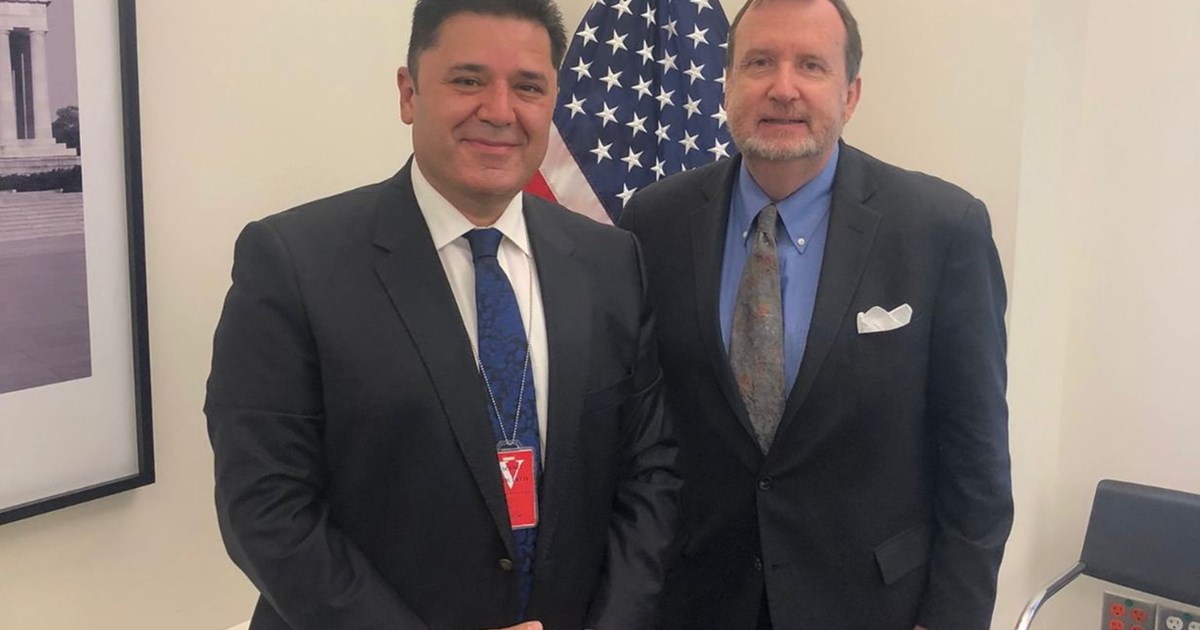Head of OCIA meets with the US Deputy Permanent Representative to the UN Security Council

Erbil, Kurdistan Region, Iraq (GOV.KRD) – The Head of the Office of Coordination for International Advocacy (OCIA), Dr. Dindar Zebari on Sunday met with the US Deputy Permanent Representative to the UN Security Council, Ambassador Richard Mills, to discuss reforms and the role of the Kurdistan Region in advocating for the recognition of genocide carried by ISIS in Iraq.
During his visit to New York, Dr. Dindar Zebari spoke about the role of the Kurdistan Regional Government (KRG) played in the fight against ISIS and recalled how the Kurdistan Region stepped up to help communities that suffered atrocities at the hands of the terrorist group. The Kurdistan Region welcomed refugees and IDPs, providing services and support, including the establishment of an office to help rescue hostages and the formation of a high-level ministerial committee to gather evidence of genocide for international recognition.
He added that the Kurdistan Region’s Peshmerga forces, with the support of the Coalition and the Iraqi Army, were able to defeat the terrorist group and liberate cities across the country. About 1,800 Peshmerga made the ultimate sacrifice and 10,369 were wounded, while 47 are still missing.
Addressing the security situation in some of the liberated areas remains a priority for the Kurdistan Regional Government, which Dr. Zebari highlighted depends on the implementation of the Sinjar Agreement. The presence of armed militias and outlawed forces continues to threaten stability in those areas and requires the international community to play its role in pushing for its implementation and allowing civilians to safely return to their homes.
Dr. Zebari also outlined efforts by the Kurdistan Regional Government to work closely with UNITAD and its push for accountability, which includes a recent bill submitted to the Kurdistan Regional Parliament to establish a special court for international crimes committed by ISIS. He urged the Security Council to play a greater role in assisting the Kurdistan Region and Iraq in recognizing the crimes committed by ISIS as genocide.
Dr. Zebari updated Ambassador Mills on the Kurdistan Regional Government’s progress with its reform agenda and commitment to promoting human rights. He reiterated that despite the economic and political obstacles faced by the ninth cabinet, the Kurdistan Regional Government continues to advance security sector reforms, economic development projects, and public sector improvements. It has also successfully drafted a human rights plan that will be implemented across government institutions, which has been endorsed by the international community and human rights advocates.
